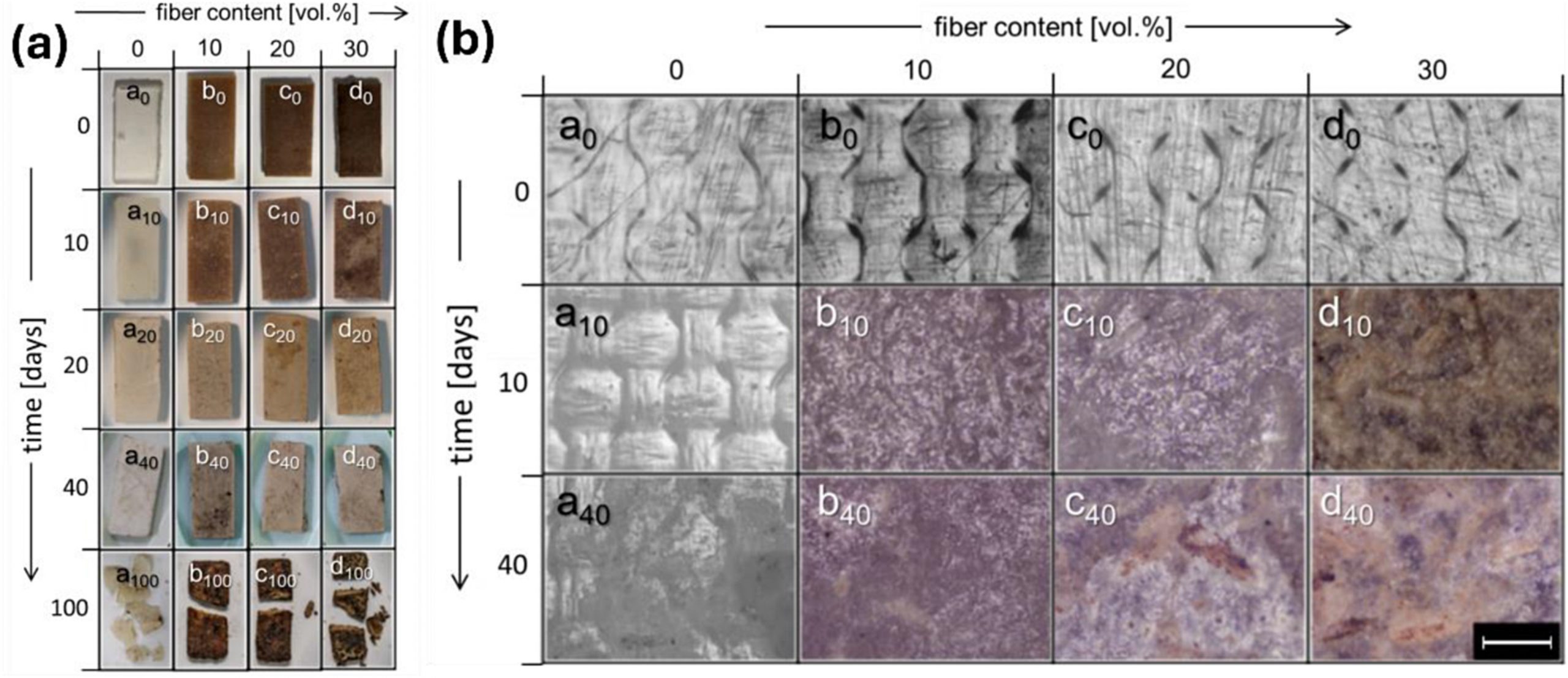Our work on the degradation kinetics of PLA/hemp biocomposites in freshwater and mature compost is now out in Composite Science and Technology (open access).
Natural fibers, such as lignocellulosic ones, can create sustainable biocomposites with fast degradation by allowing water and degrading organisms to penetrate the host matrix and trigger hydrolysis. This process is crucial for the degradation of bio-polyesters, which typically degrade slowly at ambient temperature and humidity. However, fibers can also slow degradation by promoting matrix crystallization. This study investigates how hemp shives can accelerate poly(lactic acid) (PLA) hydrolysis in water, overcoming the nucleating effect of the fibers. In compost, the fiber-induced crystallinity has a shielding effect, eventually slowing down PLA degradation kinetics.
This work is carried out in the framework of the GREENCO project, together with our colleagues at the Institute for Polymers, Composite and Biomaterials of the National Research Council of Italy in Catania.

